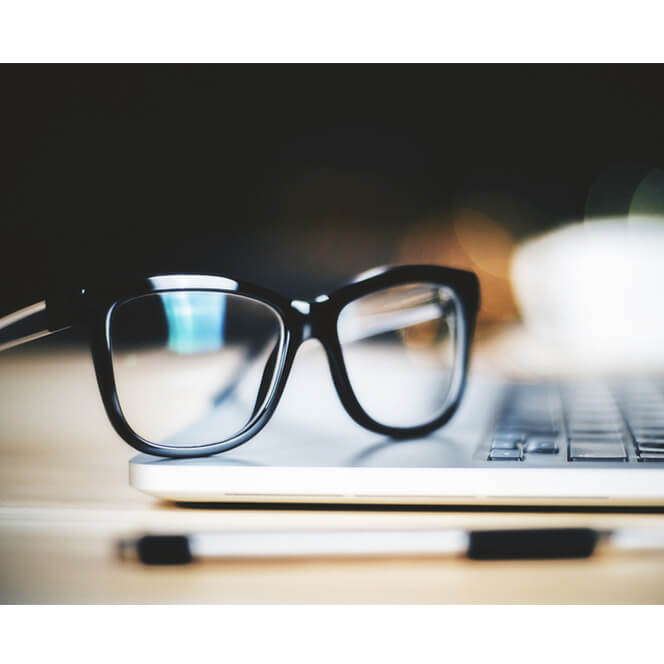The world has dramatically changed in response to COVID-19 and along with it, our definitions of health or illness. The relative speed of these changes—in contrast to most social changes which take decades to occur—provides an opportunity to demonstrate the socially constructed nature of health or illness. Generally, such haunting illustrations of swift societal change are the stuff of movies.
For example, in 2018, two post-apocalyptic films were released that challenge notions of disability: A Quiet Place and Bird Box. In the film A Quiet Place, starring John Krasinksi and Emily Blunt, there are “creatures” that find prey by using sound; thus, the characters in the film must remain quiet – silent. This silence is facilitated by the fact that the family can communicate using American Sign Language because the oldest daughter is Deaf. The ability to communicate without audible speech helps the entire family navigate a world in which audible speech is a liability, thereby flipping the disability narrative. In this world, needing to communicate using audible speech makes the world dangerous and inaccessible; i.e., the inability to sign is an impairment.
Similarly, the Netflix movie Bird Box, starring Sandra Bullock, turns the “ability” of sight into a liability. When individuals see the “entity” they lose control of themselves, turning their worst fears of dying into realities. For example, upon seeing “an entity” one woman loses control of her vehicle having it flip over and crash, while another walks into traffic. To avoid similar fates, survivors wear blindfolds, thereby protecting themselves from seeing these entities. Despite these measures, (sighted) individuals have difficulty navigating this new reality, and the world is in chaos. There is, however, one place that appears to be a utopian community in this post-apocalyptic reality and the climax of the film revolves around Sandra Bullock’s character leading her children to this community. Only upon their arrival at the community do the audience (and the characters) learn that the community is a school for the blind. This makes sense, as individuals who are blind are better equipped to navigate a world in which sight is a burden and are not at risk of seeing the entity. Thus, in this situation, one’s reliance on sight to navigate is impairing.
The world in which we are currently living shares some commonalities with these alternate post-apocalyptic universes. Both films call into question cultural narratives of disability and impairment based on environmental conditions. Namely, in both films, and in our current society, the world as we once knew it does not exist, the way we navigate the world must change, and individuals’ features that were at one time considered a disadvantage may now be an advantage.
Although considerable media attention has focused on what makes individuals more vulnerable to the virus than others due to physical conditions or socioeconomic circumstances, less attention has been paid to the mental health effects of the virus. Of the media coverage, much of it is concerned with helping individuals maintain their mental health and social networks in a time of heightened uncertainty and anxiety. A smaller body of media, however, has discussed how individuals who already were living every day with mental illness are managing the pandemic. The messages from this media is somewhat surprising, but in essence find that a lack of prior experience with mental illness may be impairing; or even that coronavirus decreases one’s mental illness symptoms.
In a recent op-ed in Everyday Sociology, Cate Taylor noted that during this time, having anxiety feels less like a disorder and more like an adaptation. She credits her anxiety with motivating her to take steps to protect herself and her family before others (presumably individuals without anxiety) had done the same. For example, she went out and purchased essentials, began sanitizing, and even foresaw the need for masks. By doing so, she was better prepared than others for the shortages that were to come.
During the pandemic, a “mental illness” such as anxiety may be beneficial by prompting individuals to prepare materially, but also mentally. In this new reality, individuals who have never before experienced this level of mental distress for an extended period of time may be feeling especially uncomfortable. In contrast, individuals who were already living with a mental illness such as anxiety, Obsessive Compulsive Disorder (OCD), or even depression may be equipped with better coping skills, or at the very least, are familiar with navigating these feelings. In a recent episode of the podcast Death, Sex, and Money (DSM) about individuals with OCD (a condition in which individuals have unwanted obsessions that make them feel driven to do certain behaviors (compulsions)) actress Diane Davis noted “I think I was sort of like, you know what? I’m going to be able to handle this because I know what it is to be really afraid of contamination.” As in the films, what was once considered an “impairment” may actually be an advantage in this new reality.
Some individuals have noted that their mental illness does not feel quite as bad because there is something concrete on which to focus these feelings. As noted in an NPR story released on April 23rd 2020 by Noel King, Sarah Menkendick, who has had anxiety for many years, noted that the coronavirus has helped her center her anxiety on one thing, rather than worrying about every single little thing. In doing so, it has actually eased the symptoms of illness: “So I think a lot of anxiety is about not being able to accept any uncertainty at all and having to sort of try and control everything all the time. And I think in a situation of real fear, like the one that we’re living in now, where, you know, we know people who have passed away from this illness, all of a sudden, my anxiety just seems like it doesn’t matter, you know? Like, it’s completely futile…. And it was, well, thank God that I’m healthy. And thank God I’m here with my family. And who cares about sunscreen, you know?”
Finally, for some individuals, the “symptoms” of their mental illness may not feel quite as bad because those with mental illness are not experiencing these feelings alone. One of the most difficult things about having a mental illness is feeling “othered” or “different” from everyone else. When individuals with mental illness feel as though the rest of the world does not understand their experiences, having mental illness becomes especially challenging; not only is the individual managing symptoms associated with their mental illness, but also feelings of alienation. During the pandemic, individuals with mental illness may be finding themselves, for the first time in their life, in the majority. In a time in which the rest of the world is experiencing anxiety, depression, and compulsive worry, being a person with one of these mental illnesses is no longer the outlier. In a world with job insecurity, health risks, death, and a lot of uncertainty, these feelings are “normal.” As a result, during this time, the line between illness and health is blurred, with people who do and do not have mental illness labels experiencing the same thoughts and feelings. As poignantly said by Diane Davis on DSM “I feel like people must be going a little bit through something like what I went through when this first hit me, when I was, you know, 17 years old. You know, this fear of contamination is in all of us now.”
Of course, for some individuals with mental illness, COVID may be exacerbating existing symptoms of mental illness. One might imagine how anxiety is heightened, depression is worsened, and OCD is intensified by the reality of a global pandemic. These negative mental health effects are not to be taken lightly. But for many, the reality of living with a mental illness has prepared them for living in the time of a global pandemic in which everyone else is made to feel the same way by the uncertainty in the world. This sharp turn in societal norms demonstrates how relative the definition of health and illness really is. As noted by Cate Taylor: “[Anxiety] is only a disorder in the context of safety. In the context of a disaster, though, it is very useful.”
Recommended Reading/Listening
King, Noel. 2020. “How The COVID-19 Outbreak Is Making Some People Less Anxious.” NPR, April 23.
Sale, Anna. 2020. “They Were Managing Their OCD. Then Came the Pandemic.” Death, Sex, and Money, April 22.
Taylor, Cate. 2020. “Is Generalized Anxiety Disorder a Disorder? In the Context of Disaster, Not Really.” Everyday Sociology. Retrieved.
Pescosolido, Bernice A., Jack K. Martin, J. Scott Long, Tait R. Medina, Jo C. Phelan, and Bruce G. Link. 2010. “‘A Disease Like Any Other’? A Decade of Change in Public Reactions to Schizophrenia, Depression, and Alcohol Dependence.” American Journal of Psychiatry 167(11):1321–30.
Bianca Manago is an Assistant Professor of Sociology at Vanderbilt University. Broadly, her research focuses on status, stigma, and research methods. Twitter: @biancamanago1


